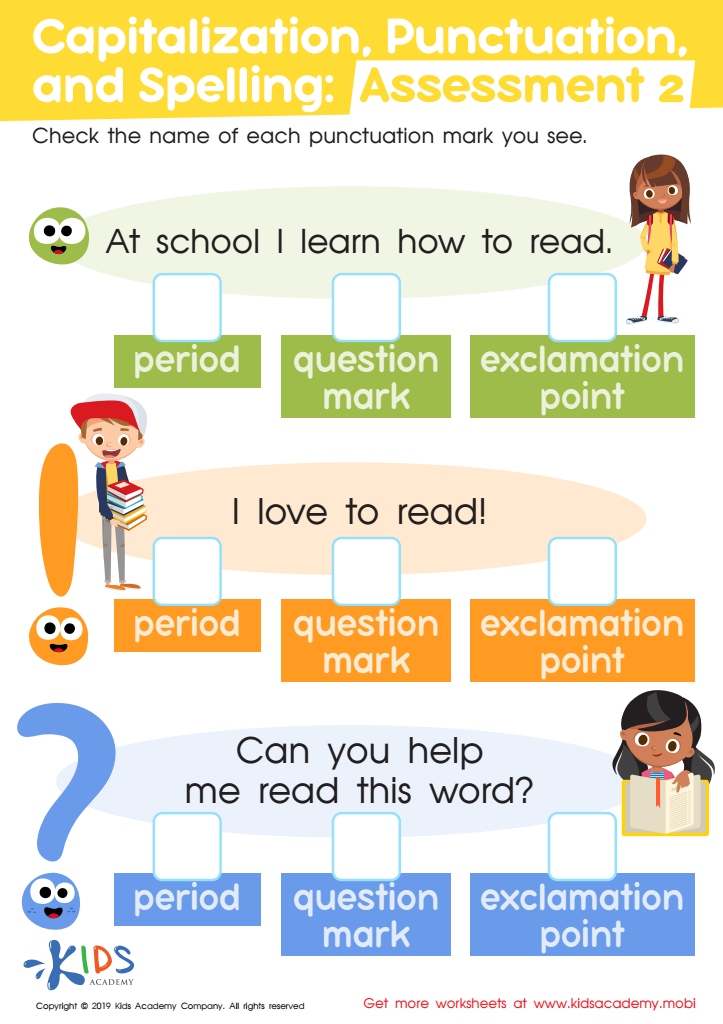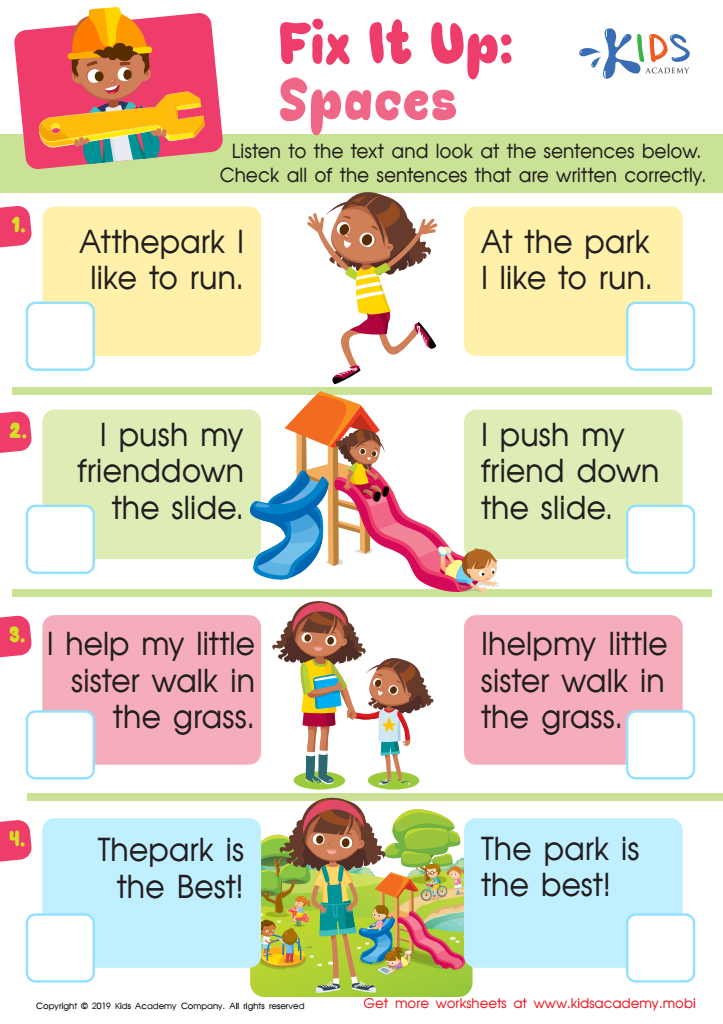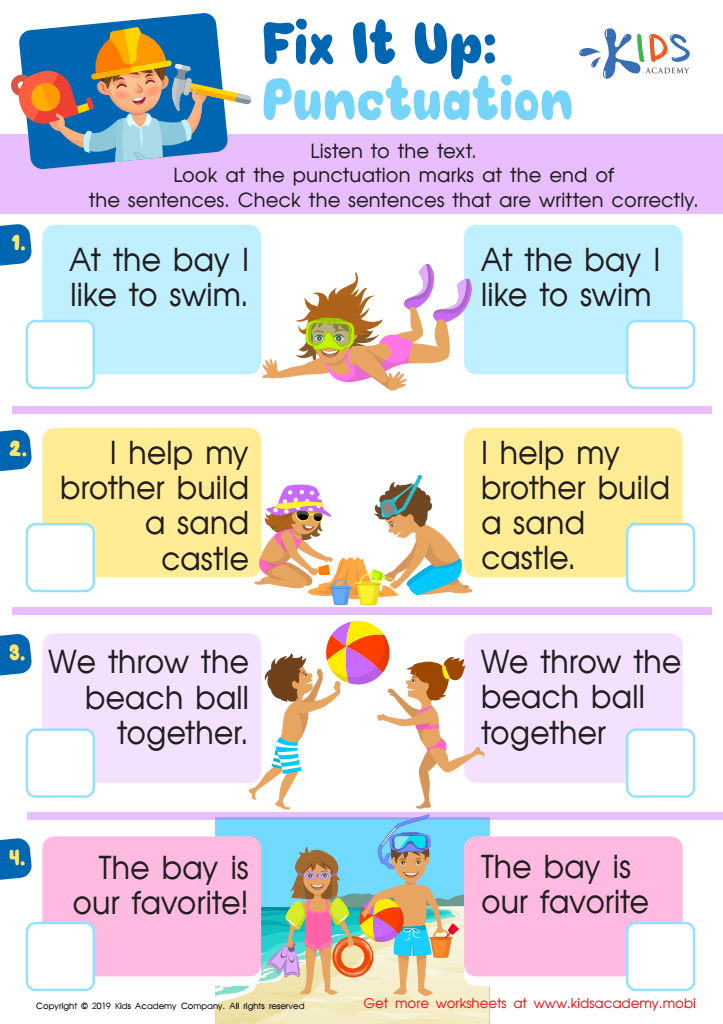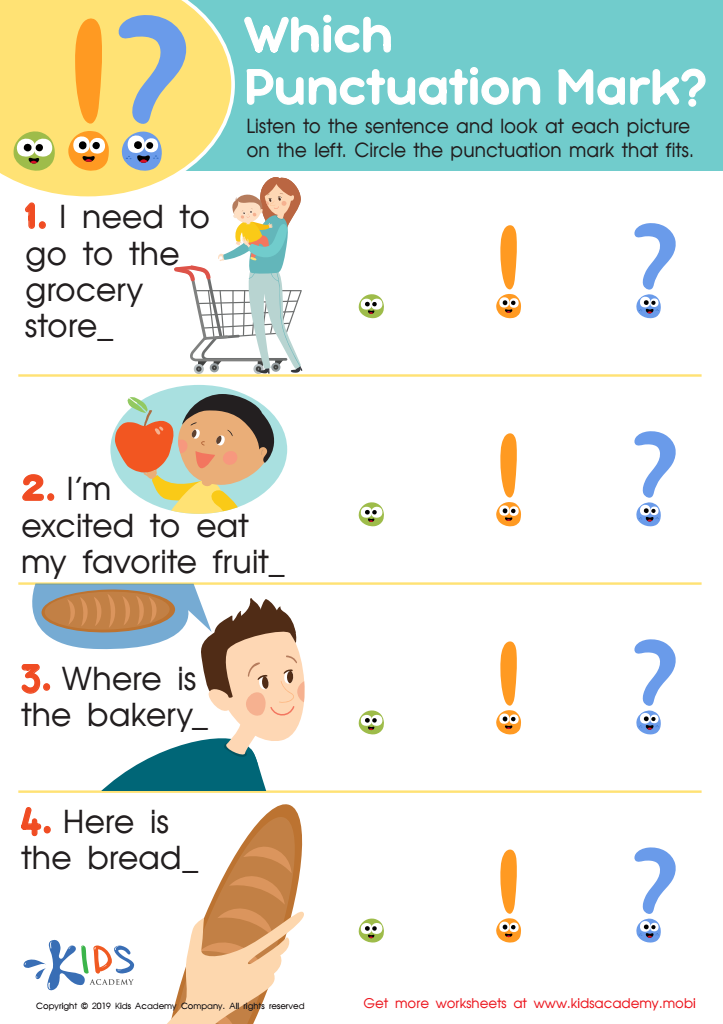Easy Punctuation Worksheets for 6-Year-Olds
4 filtered results
-
From - To
Introducing our Easy Punctuation worksheets, meticulously crafted for 6-Year-Olds! Dive into the foundations of writing with our engaging, expertly designed worksheets, tailored specifically to the learning curves of young learners. This collection offers a seamless introduction to punctuation marks, making it fun and accessible. Through a mix of exercises, children will explore the basics of periods, commas, question marks, and more, all while enhancing their reading and writing skills. Perfect for both classroom and at-home learning, our Easy Punctuation worksheets for 6-Year-Olds are your go-to resource for nurturing proficient, confident young writers. Start the journey to punctuation mastery today!


Capitalization. Punctuation. Spelling: Assessment 2 Worksheet


Fix Spaces Worksheet


Fix Punctuation Worksheet


Which Punctuation Mark Worksheet
Easy punctuation worksheets tailored for 6-year-olds serve as a fundamental tool in the early stages of a child's literacy and language development. These worksheets are crucial because they introduce young learners to the basic rules of punctuation in a simple, engaging, and age-appropriate manner. By incorporating easy punctuation exercises, children can learn at their own pace, which helps in building a solid foundation for their writing and reading skills.
Moreover, punctuation marks are the traffic signals of language; they guide readers through sentences, ensuring clarity and understanding. For 6-year-olds, understanding the basic uses of periods, question marks, and exclamation marks can dramatically improve their ability to communicate their thoughts in writing and comprehend the messages in the texts they read.
These easy worksheets are designed with young learners in mind, incorporating colorful visuals and interactive activities that make learning punctuation not only educational but also fun. This approach increases their engagement and interest in learning more about language rules.
In conclusion, easy punctuation worksheets for 6-year-olds are an invaluable resource. They lay the groundwork for effective communication, foster a love for reading and writing, and equip young learners with the skills necessary to navigate the complexities of language as they grow.
 Assign to My Students
Assign to My Students


















